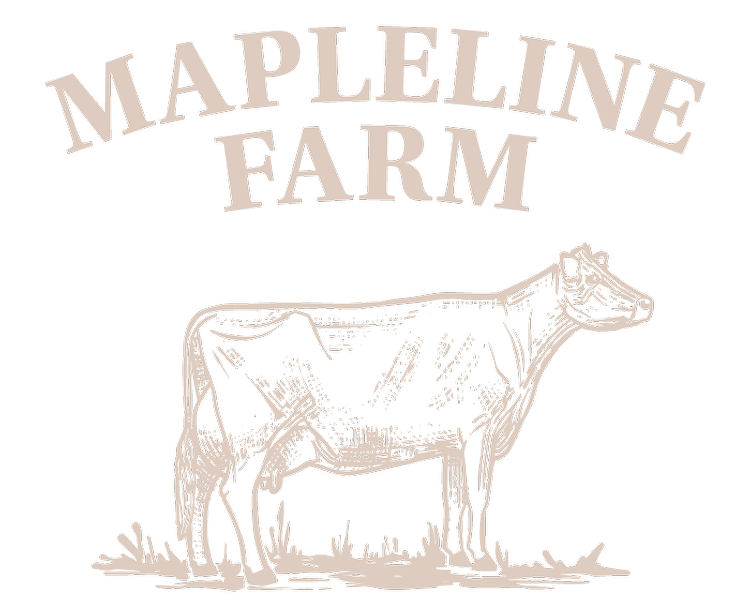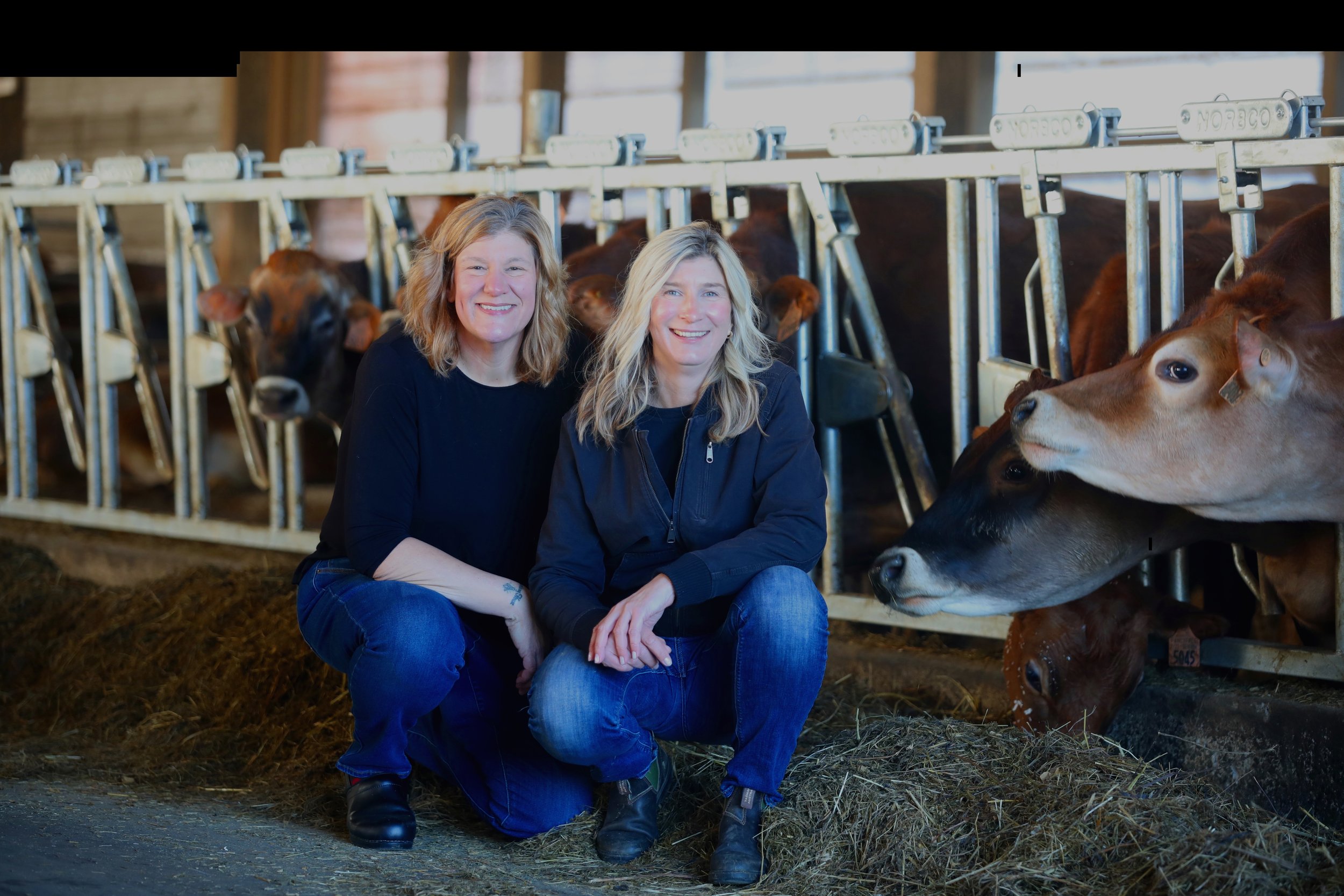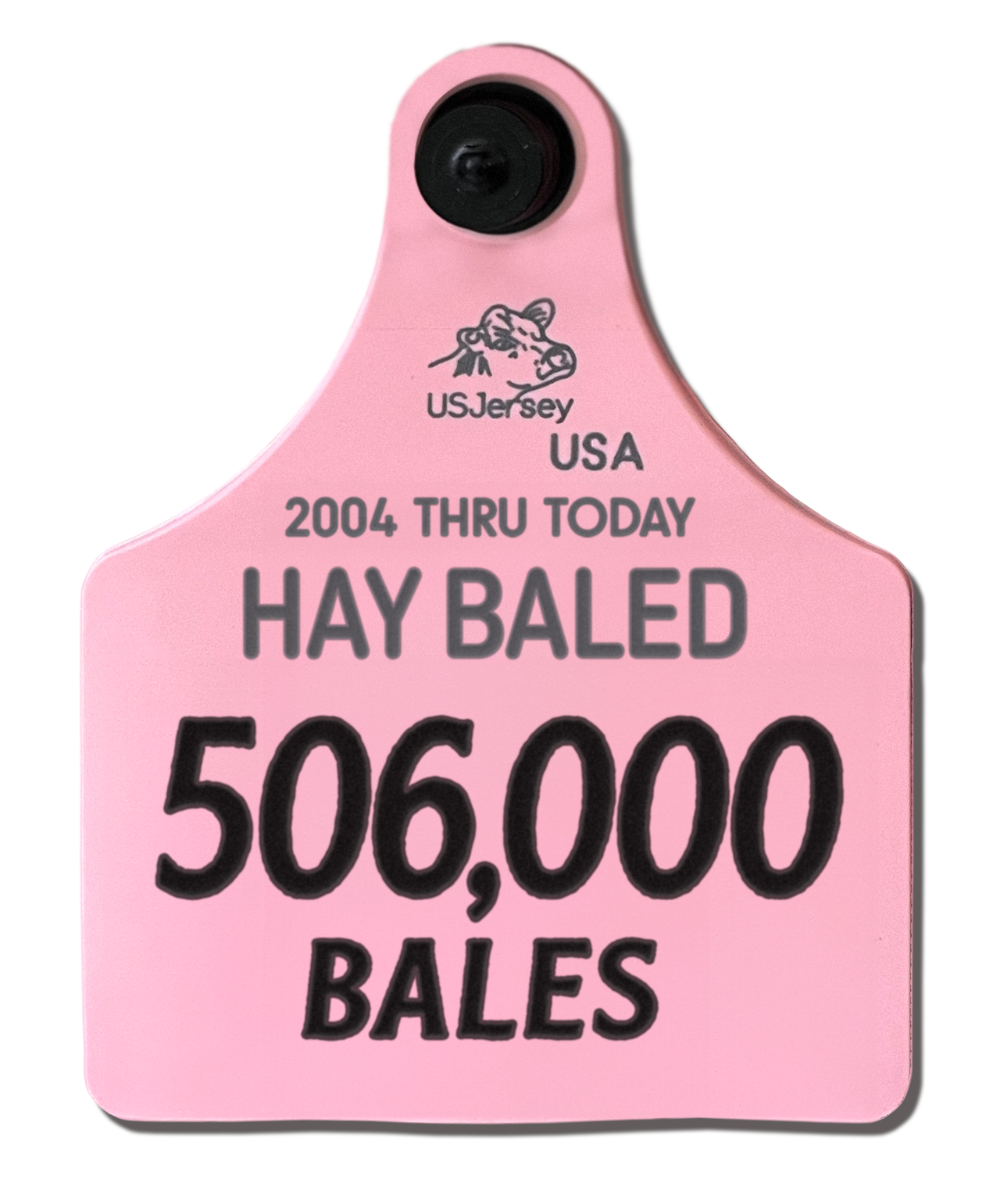
WE'RE LOOKING BACK
AND MOVING FORWARD.
Rich and fertile Hadley farmland, a dairy barn, and a farmhouse big enough for a growing family went on the market in 1904 and caught the eye of a young immigrated couple while browsing the local paper…and the rest is our history.
Stanley and Anastasia Kokoski decided to make the investment and established a family and farm that has quite literally spanned the generations. 2024 marks 120 years of our family farming this land, and we are excited to share how Stanley and Anastasia’s kids, cows and farm way of life have transformed over the years.
A lot can happen in 120 years…
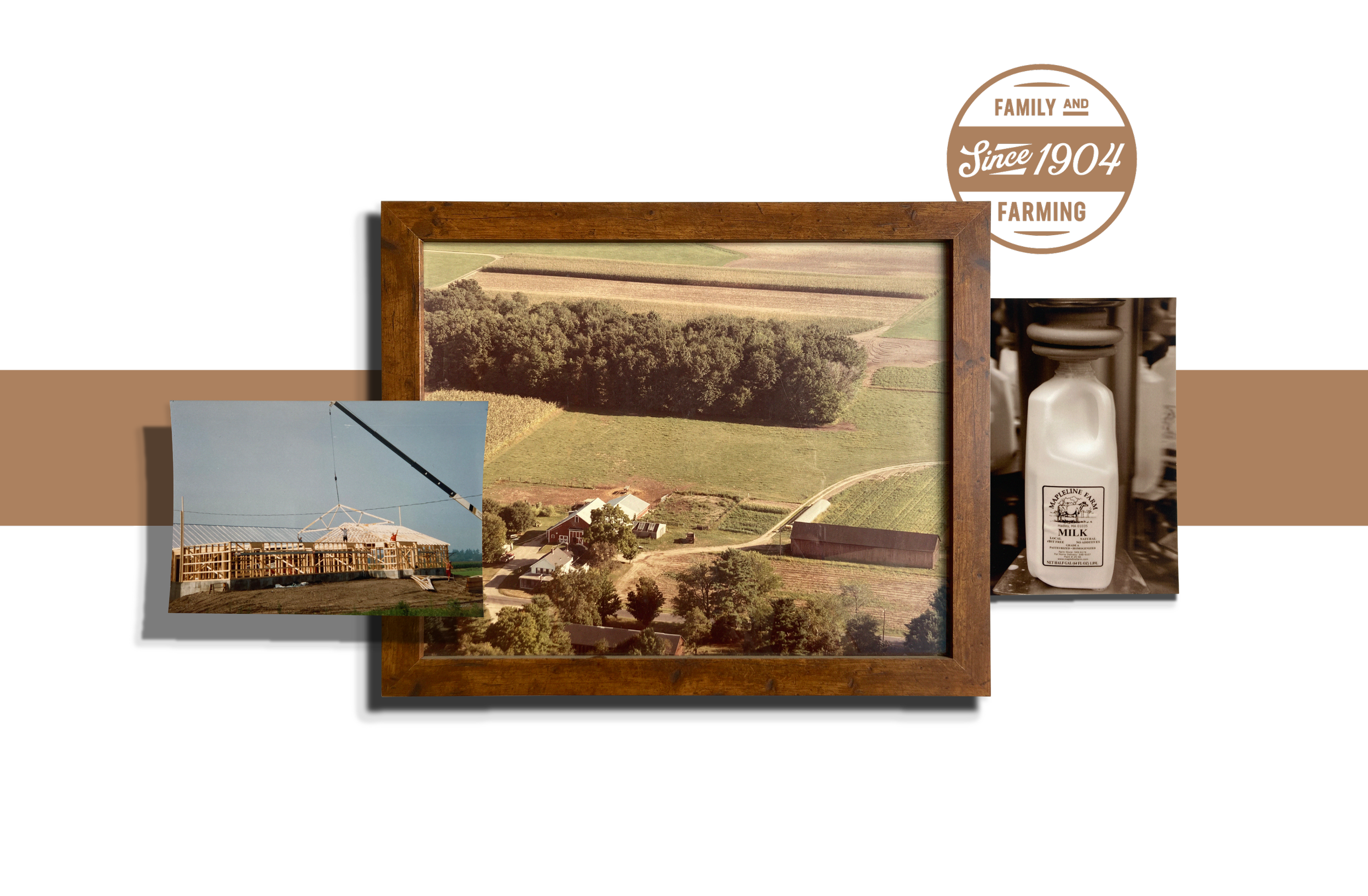
THEN and NOW
MAPLELINE FARM THROUGH THE YEARS
From the first planting to our latest bottling run — join us for a look back at what’s changed, and what has remained the same.
A BRIEF OVERVIEW
-

1904
Our farm was established in Hadley, an area known for its rich soil on the Connecticut River, to raise produce and a small head of cattle. Milk was brought by horse and wagon to the Cushman train station to be delivered to the dairy.
Over the years, the farm mostly raised seasonal crops of potatoes, onions, and broadleaf tobacco in addition to keeping a few cows.
-
2024
Today, Mapleline Farm's milk is managed by the 5th generation and can be found throughout Massachusetts.
Although the farm has been experiencing growth over the past 20 years, we still remain committed to producing and maintaining a healthy Jersey herd, preserving the farm land for our future generations and building a sustainable business model for decades to come.
THROUGH ALL THESE YEARS,
ONE THING HASN'T CHANGED:
Our family shares the same concerns with yours that we always have — knowing the origins of your food, and supporting local agriculture and locally owned businesses.

MAPLELINE
THROUGH
THE YEARS
-
America’s involvement in the war saw Henry (3rd generation) leave school under the farm deferment to work on the farm, and his brother Chester went off to war. In 1945 the farm was expanded to support the three families working there at the time.
After the war, Henry Jr., established a herd at the farm and the milk was shipped to the New England Milk Producers processing plant in West Springfield, MA.
-
In 1962 Henry Sr. expanded the farm and it was eventually split between Henry’s two sons, Henry Jr. and Chester so they could both pursue their own farm operations. Henry Jr. milked cows through the 1960’s.
Four Jersey cows were bought at a local auction at the pursuit of John the 4th generation who admired the little brown cows and was looking for something different to bring to the 4-H fairs he participated in. Thus, establishing a small Jersey herd for the first time and setting the stage for what would become Mapleline Farm. Through the 1970’s cows came and went at the family farm as markets and demands changed.
-
In 1984, John decided to get back to his love of dairy cows and bought some Jersey from auctions in Vermont. Descendants of these cows still remain on the farm today. An average of 40 milking cows in a tie-stall barn were maintained through the 80’s and early 90’s.
-
A waning milk market and the desire to create a sustainable operation for the farm that would be viable for future generations was the inspiration to bottle and market our own milk. Milk was bottled in glass at Quality Milk in Ware, MA and sold out of a small store in the old milk room of the barn. Neighbors loved the idea of local, fresh milk in glass returnable bottles and soon the local grocery and restaurant scene wanted their hands on this rich, delicious milk too!
-
Plastic bottles were also introduced to meet wholesale demands and in 2001, a processing and bottling plant was built on the farm. The herd size continued to grow throughout the years, and in 2003 a free stall barn was built to accommodate the demand. Today, Mapleline Farm's milk can be found throughout the state. The herd has been recognized nationally for type and production and we have been active members of the American Jersey Cattle Association and local farm associations throughout the years.
Although the farm has been experiencing much growth, we still remain committed to producing and maintaining a viable Jersey herd, preserving the farm land for our future generations and building a sustainable business model. Our family shares the same concerns that yours does about knowing the origins of your food, and supporting local agriculture and locally owned businesses. Today, the farm is owned and operated by the 5th generation of the farm.
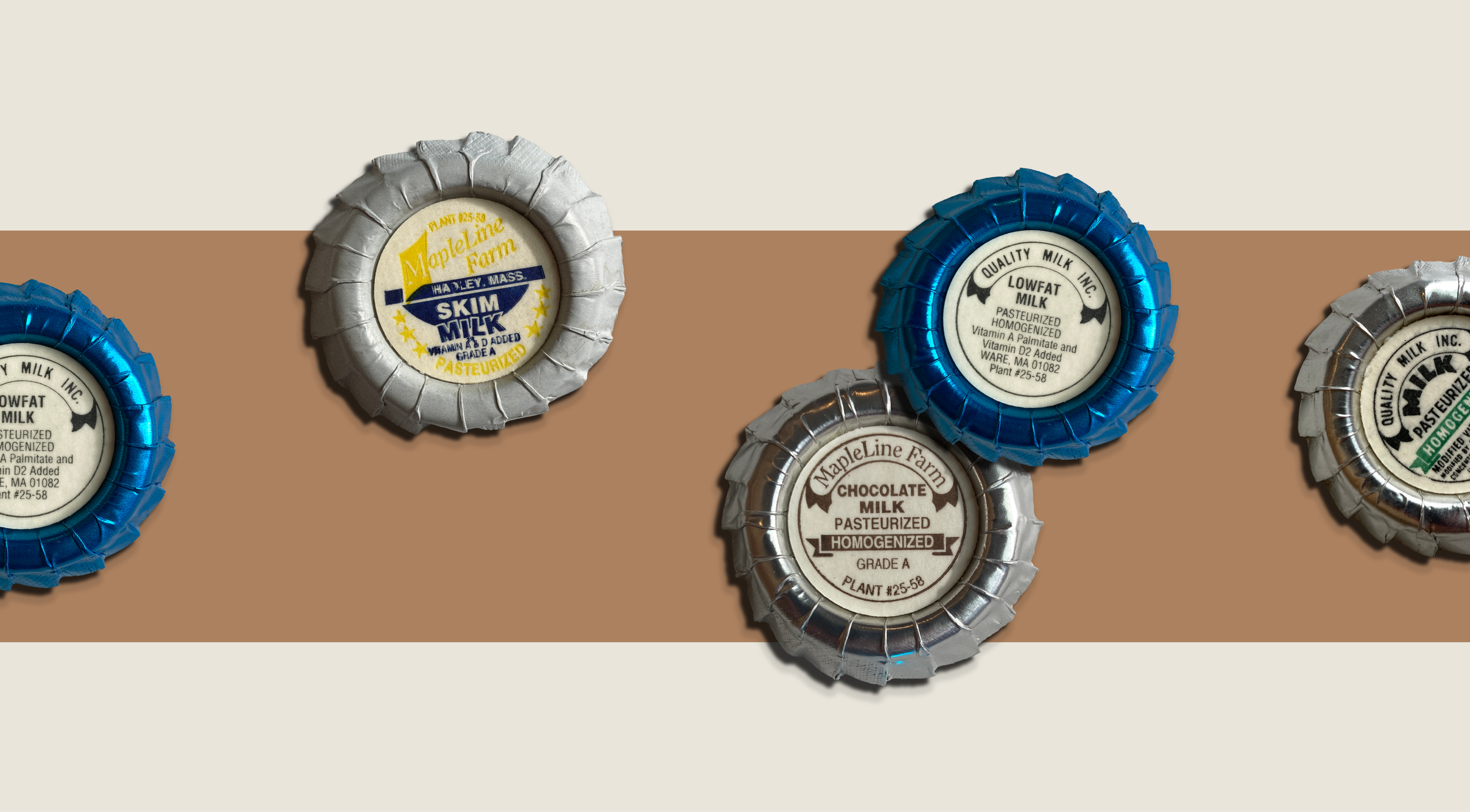

And although we don’t have an exact accounting of all 120, our rough calculations show that since 2004 out we've tallied the following numbers:
120 IS A LONG TIME IN COW YEARS
Cows Raised*
Hay Baled*
Milk Sold*
*Records represent an estimate based on records kept over the last 20 years, from 2004 thru 2024.

And Our Farm Isn't the
Only Thing That's Grown
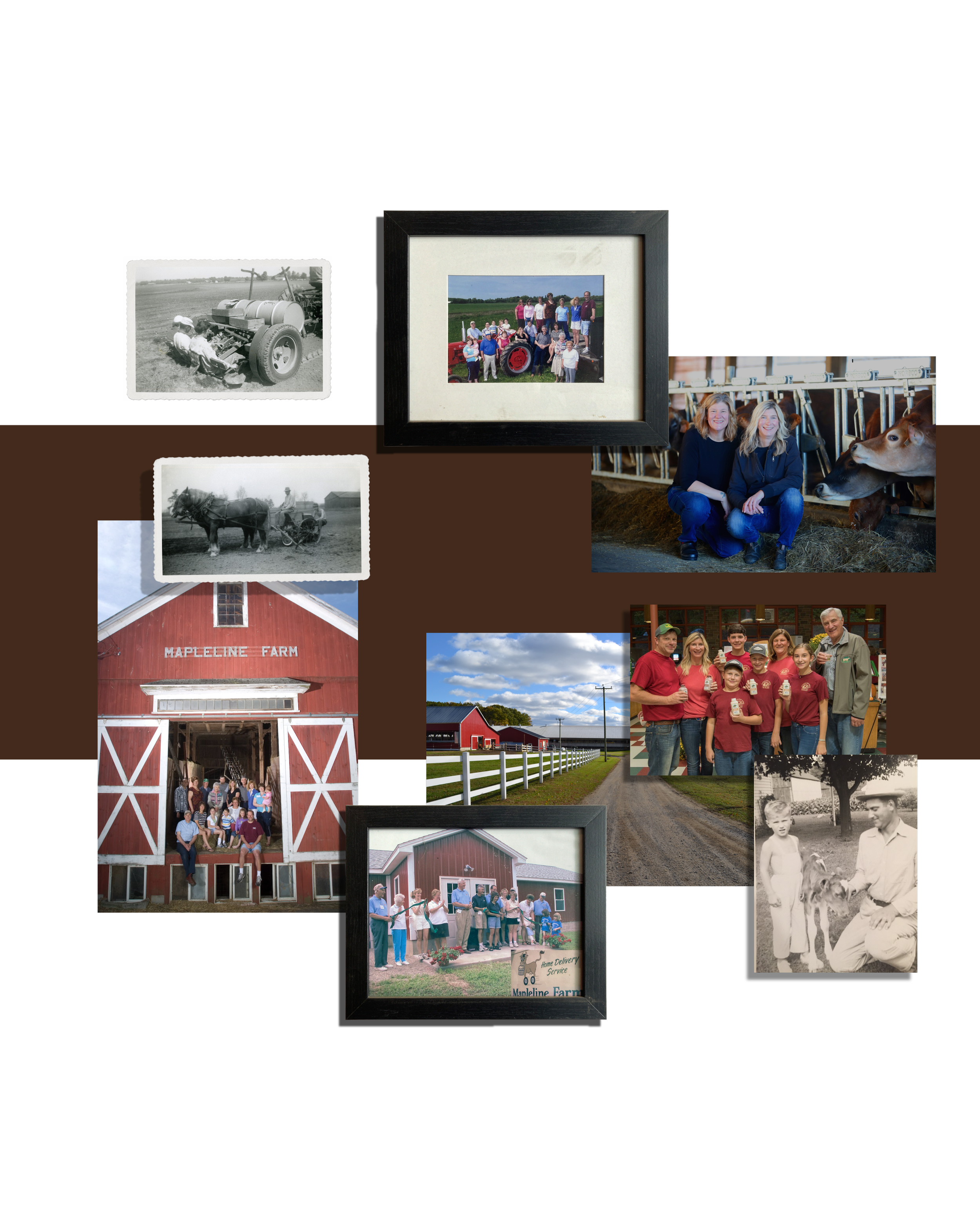
FAMILY HAS ALWAYS BEEN AT THE HEART OF OUR FARM, FROM DAY ONE TO YEAR 120.
Seasons have come and gone, and life on the farm has changed in countless ways since 1904, but the beating heart of Mapleline Farm has always been the family tending it.
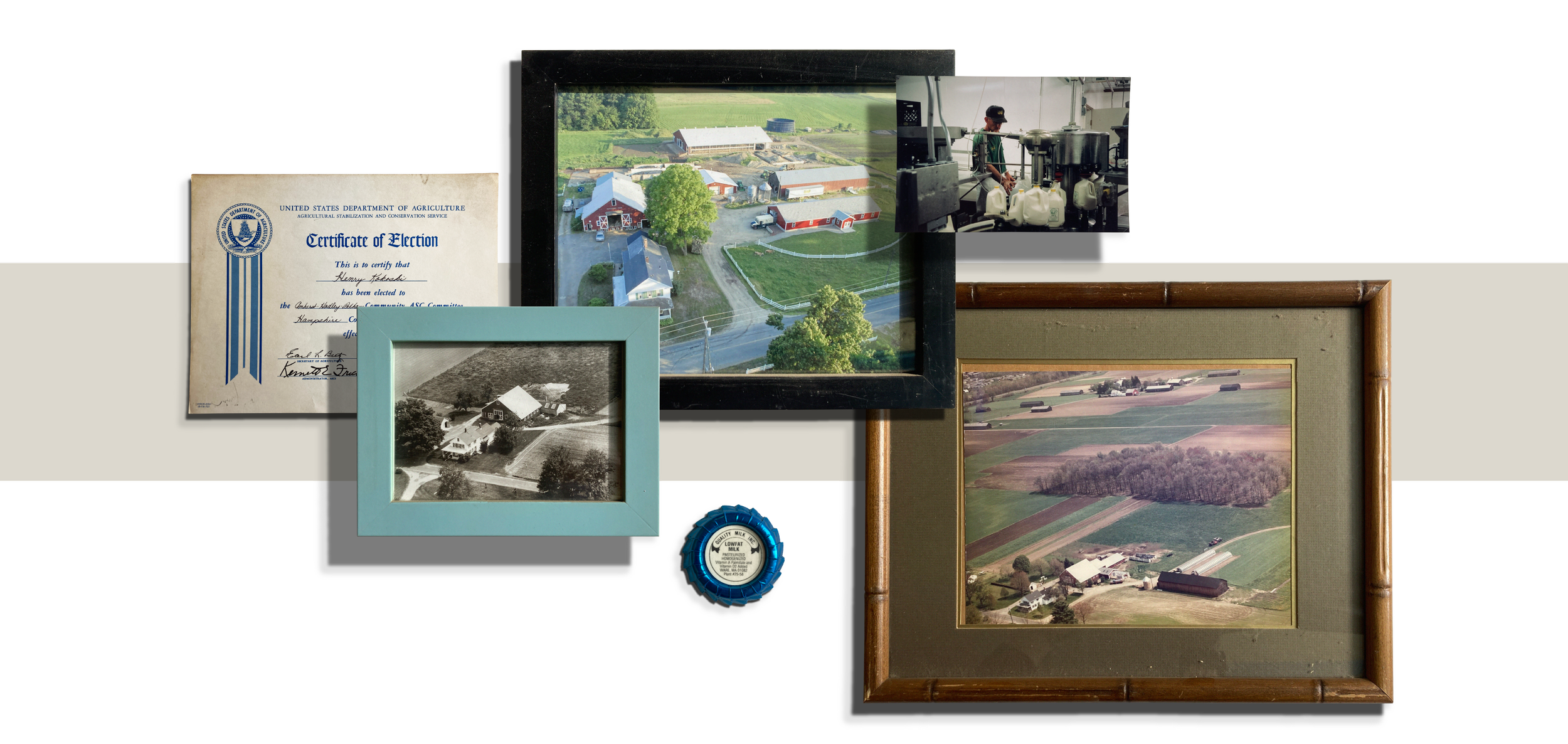
TIME AND TIME AGAIN
We've seen our community grow and change...so we have too
As the vibrant community around us has grown and shifted, so have we: from the way we monitor the health of our cows, to the way we package and deliver our wide variety milk, and everything else in-between.
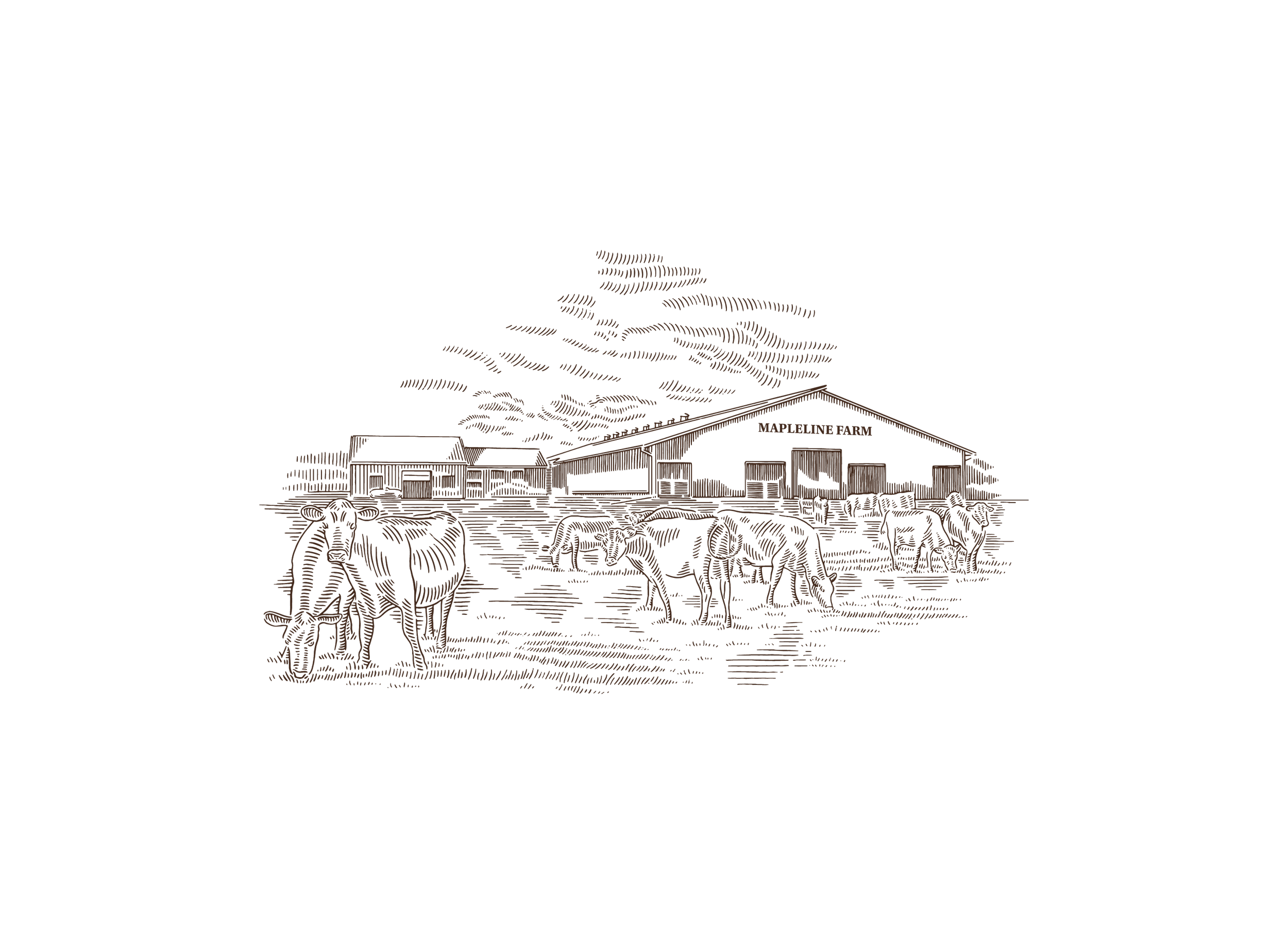
Our Commitment to Responsible Growth
Dairy farming isn’t unlike other industries in that the science, technology and methods we use to operate an efficient and cost-effective business are constantly changing. Introducing and adapting to new ways to manage our land are a constant, and essential when you are stewards to this precious resource we live off.
Our Jerseys, although some are descendants of the original herd, are not the same Jerseys that were first bred here. Our current herd produces more milk, more efficiently due to advances in genetics and in the nutrition and animal comfort that we monitor on a daily basis. Some of the things we’ve implemented or that are on-going in today’s operation include climate-smart agriculture practices, agricultural preservation restrictions, solar power, genomic testing for better breeding decisions and desirable health traits, feed sampling for optimal nutrition, manure management and routine veterinary wellness checks and milk sampling. Sustainability, while utilizing new research and technologies is, of utmost important for the next generation.
THANK YOU FOR YOUR SUPPORT OVER THE LAST 120 YEARS…
